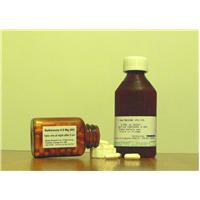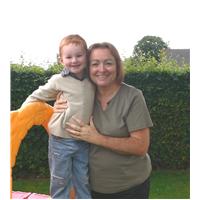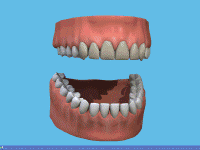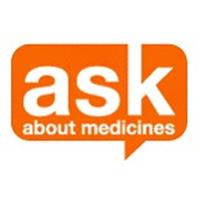London: A respected and fully licensed private clinic that specialises in treating an array of illnesses by rebalancing the body at a cellular level has successfully cured more than 200 patients suffering from Type 11 diabetes.
Now the clinic is looking for three UK patients that it is offering to treat on a complementary basis in exchange for their story in a case study for the media – this would include interviews and photos. Patients who take part must be willing to have the story of their cure published exclusively in the first instance in ELIXIR, the new glossy magazine on healthy ageing.
The treatment which is bespoke and unique is not experimental and does not involve the use of any unlicensed or unproven drugs. This is not a patient trial or an experiment and it is not a drug therapy.
The clinic, which is outside of the UK, is planning to offer this treatment in Britain.
The treatment which the patients would receive focuses on rebalancing the whole body at a cellular level, including restoring the optimum function of all the vital organs. This allows the body to heal itself. The end result is that patients will usually loose weight, the pancreas starts to produce normal insulin flows and the body eventually reacts normally to insulin. As a side effect the treatment also turns the body clock back by five years.
This treatment is intense and requires the patient to be away from home for three weeks. It is carried out in three phases detox, repair and renewal. The patient sees a doctor every day, spending three hours daily in the clinic. The rest of the time can be spent as a tourist providing no alcohol is consumed. The patient stays in a nearby hotel.
These advanced diagnostics are to discover what in addition to diabetes is influencing the bodys health. This clinic probably has more state of the art diagnostics than any other clinic in the world, including from the US and Europe. The doctors are the best in the country and have the highest medical qualifications and include endrocrinologists.
The tests they will take look at the health of every organ, its functional level, hormones, cardiovascular health and include a detailed analysis of the blood to determine whether the body has infections such as parasites, HIV or hepatitis.
Included are the following
Ultra sound radio wave scan
ECG heart scan
Cellular energy scan of all the bodys vital organs
Cardio vascular system scan
As a result of the findings the doctors create the bespoke three step programme which is administered via intravenous drip for between three to four hours a day. During this time the patient can read or listen to music on an IPOD for example. An intravenous drip is used because the therapy is more efficient and without side effects such as nausea since it bypasses the stomach.
The treatment starts to work with three days but some patients see an improvement within hours as insulin levels plummet. Patients are required to wear a monitor which tests their blood sugar every three minutes.
The treatment programme has an effect not only on the principle illness but on the metabolism. When the function of an organ is returned to normal the body rids itself of everything it doesnt need, like plaque and toxins. The body starts to heal itself and the doctor just helps in the process
In the first phrase of treatment patients are detoxed and cleansed and particular attention is given to the ph (acid versus alkaline) composition of their blood. This cleansing of the body is energising and assists the next stage.
In the second phase therapeutic treatments are administered which may include antibiotics and other drugs. The issue of sugar and how the body deals with carbohydrate is also corrected and patients may be able to withdraw from insulin use if the pancreas is sufficiently stimulated.
In the third phase an array of pleasant treatments to stimulate well-being are used including massage. Patients may also be assisted with stress management techniques. This phase may include complementary therapies such as hydro-colonic therapy.
To receive this treatment is a unique opportunity and a privilege and would cost many thousands of pounds.
The clinic does treat Type 1 diabetes but on this occasion is looking for adults who have been diagnosed with Type 11. Patients suffering from cancer and cancer-related illnesses are also not suitable for this case study.
Patients will have to pay their own air fare (within Europe) and all their own expenses outside of the bespoke hospital programme. You must be willing to have your personal story told in the media together with photos.Three patients will be chosen and they will go to treatment as soon as is convenient.
If you would like to be selected for this bespoke treatment please contact us by email at communications@elixir-media.com.
Disclaimer: Elixir News is not endorsing any treatments and therapies offered but is independently reporting the story of what appears to be a remarkable step forward in the treatment of diabetes through painstaking diagnositics and treatments not available anywhere else.
![Pelleve_Before_and_Immediately_After_Treatment [320x200].jpg](https://www.elixirnews.com/assets_c/2010/11/Pelleve_Before_and_Immediately_After_Treatment%20[320x200]-thumb-299x200-413.jpg) PellevéTM is being promoted as a way to make yourself look younger and refreshed instantly.
PellevéTM is being promoted as a way to make yourself look younger and refreshed instantly.







